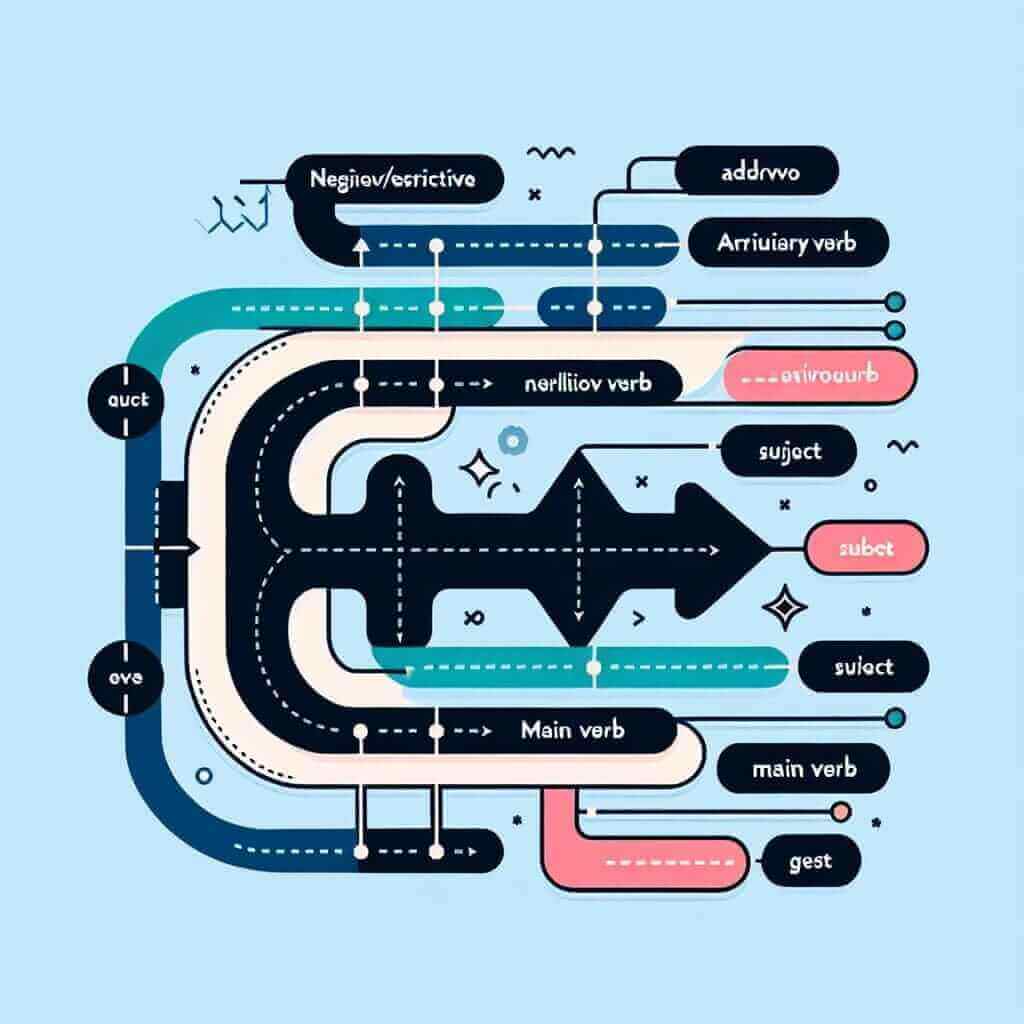Have you ever come across a sentence like “Rarely does he express his feelings” and wondered why the word order seems so strange? This unusual structure is an example of inversion, a grammatical tool often employed to add emphasis or a touch of formality to English sentences. Mastering inversion is a surefire way to boost your IELTS score, demonstrating a sophisticated grasp of English grammar.
Let’s delve into a few examples to see how inversion works in various IELTS sections:
Speaking (Part 2):
- Describe a time you witnessed an act of kindness.
- “The café was packed that afternoon, and I was struggling to find a table. Never had I seen such generosity when a young man offered me his seat.”
Writing (Task 1):
- The graph below shows the percentage of people using public transport in a major city over a 20-year period.
- “Not only did the use of buses decline, but the popularity of cycling also increased dramatically.”
Writing (Task 2):
- Some people believe that children should be allowed to make their own choices, while others argue that adults should make decisions for them. Discuss both views and give your own opinion.
- “On the one hand, it is argued that children lack the necessary experience to make sound judgments. On the other hand, proponents of childhood autonomy emphasize the importance of fostering independence.”
In each of these examples, notice how the auxiliary verb (“had,” “did,” “is”) is placed before the subject, creating a more emphatic and formal tone compared to standard sentence structure.
Deconstructing Inversion: A Closer Look
Inversion, often used with negative or restrictive adverbs, injects variety and sophistication into your writing and speaking. It’s particularly powerful for highlighting contrast or surprise.
Mastering Inversion: The Formula
Here’s the basic formula for inversion:
[Negative/Restrictive Adverb] + [Auxiliary Verb] + [Subject] + [Main Verb] + [Rest of the Sentence]
Let’s break it down:
- Negative/Restrictive Adverbs: These are words like “rarely,” “never,” “seldom,” “hardly,” “scarcely,” “no sooner,” “not only,” etc. They set the stage for an unexpected or contrasting situation.
- Auxiliary Verb: This is a helping verb (like “do,” “does,” “did,” “have,” “has,” “had,” “be,” “is,” “are,” “was,” “were”) that assists the main verb.
- Subject: The person or thing performing the action.
- Main Verb: The action itself.
- Rest of the Sentence: Completes the thought.

Inversion in Action: IELTS Examples
Writing Task 1:
Standard: The price of oil rarely fluctuates so dramatically.
Inversion: Rarely does the price of oil fluctuate so dramatically.
Here, “rarely” triggers the inversion, emphasizing the unusual volatility of oil prices.
Speaking Part 3:
Standard: Governments should invest more in renewable energy sources. Only then will we combat climate change effectively.
Inversion: Governments should invest more in renewable energy sources. Only then will we combat climate change effectively.
The inversion with “only then” adds weight and urgency to the solution for climate change.
Level Up Your Language: Advanced Usage
To achieve a higher band score, consider using inversion with phrases like “not until,” “under no circumstances,” “at no time,” or “little did I know.”
- Example: Not until I started working from home did I realize how much I valued social interaction.
Such structures showcase your command of complex grammatical patterns, impressing the examiner.
Common Pitfalls and How to Avoid Them
-
Overuse: While inversion is effective, using it excessively can make your writing sound unnatural. Reserve it for situations where you want to create a specific emphasis.
-
Incorrect Word Order: Pay close attention to the placement of the auxiliary verb and subject.
- Incorrect: Rarely he expresses his feelings.
- Correct: Rarely does he express his feelings.
Conclusion
Mastering inversion is like adding a sophisticated spice to your IELTS language use. It adds variety, emphasis, and a touch of formality to your writing and speaking, demonstrating your command over complex grammatical structures. Practice incorporating it into your responses, but remember to use it judiciously for maximum impact!